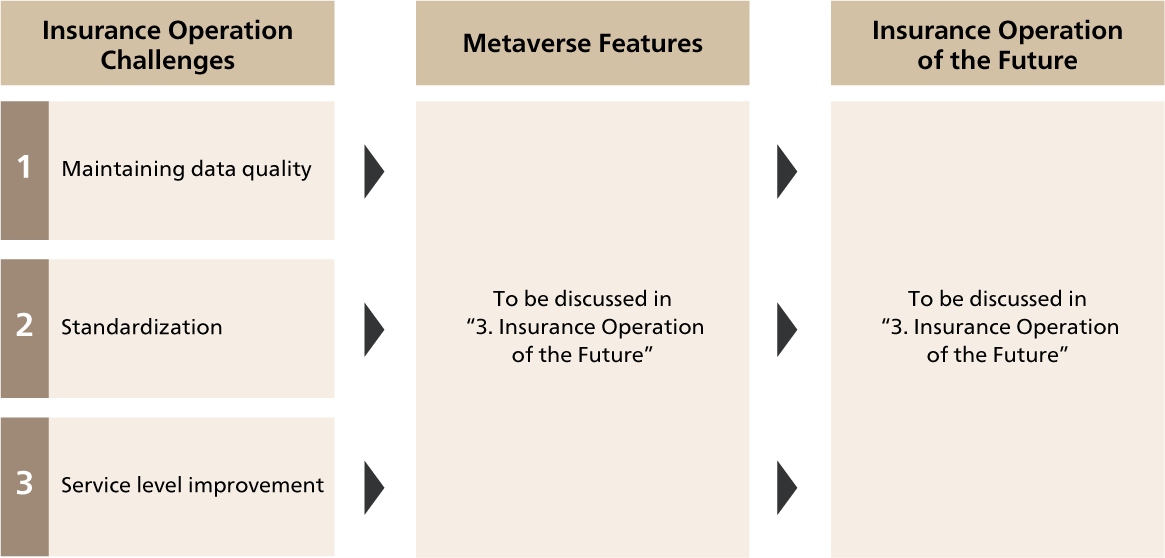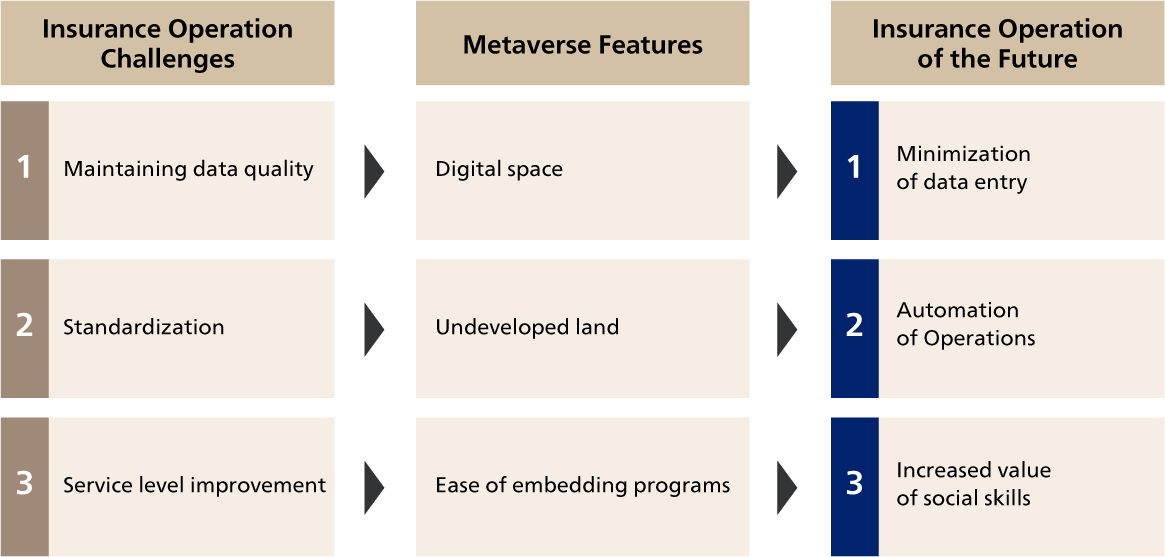Mr. C, an eSoccer player, puts on a headset. Then, he walks into a virtual hospital in the metaverse space to receive online medical care.
Doctor- How are you doing?
Player C- I'm much better now, thanks to you.
Doctor- You're certainly looking much better. You should take some medication for few more days. I will prescribe some medicine for you.
Player C- Thank you very much.
Mr. C logged out of the metaverse. The next day, he picked up his medication at home and looked at the transaction history of his wallet on the metaverse.
Player C- I see. The insurance covered the medical fees for the last time I went to the metaverse hospital. I wasn't aware of it. It always settled automatically. But come to think of it, what did my insurance policy cover?
Player C put on the headset and headed to the metaverse sales department of the insurance company.
Player C- 「Hi, could I ask someone about my insurance policy?」
Service Rep E- Yes, of course. What would you like to know?
Mr. E speaks English, while Mr. C speaks Japanese. However, they can communicate in their native language, thanks to the simultaneous interpretation function of the metaverse sales department.
Player C- It's not a big deal. I saw the benefits automatically covering my medical fees, and wondered what my policy actually covers and how long it is valid for.
Service Rep E- For example, your insurance policy covered the medical fee for hospital visit the last time you went to the hospital to treat the illness that caused your recent hospitalization. The policy term is until August 20XX, and you can check your policy details from Mr. C's wallet this way.
Showing a display, Mr. E explained how to inquire about the policy details from the wallet.
Player C- I see. Thank you.
Service Rep E- No problem! By the way, though it’s unrelated to your insurance policy, I need to tell you something. I'm a big fan of your team!





